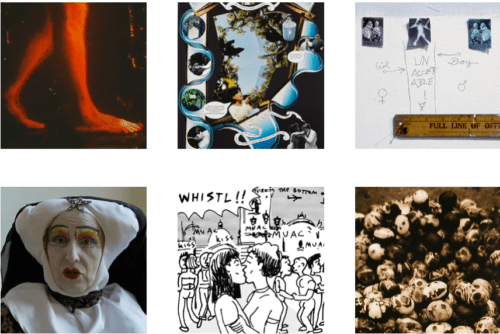Conclusion: For Further Discussion
In a post titled “Getting Started With Blogging for the Attractive Female Blogger,” Scott Johnson advises novice female bloggers that “[g]iven the facts stated above that blogging is a community, that many, many blog readers are men and that you want to be read, the more compelling identity you create for yourself, the more likely you are to be read. And, while this advice may be offensive, from a marketing perspective, if you actually want to be read, it does make sense.” 1 He then encourages women to post photographs of themselves on their Weblogs and claims that “sex sells,” so if, for example, a woman wanted to write about public relations, she should opt for a title like “A Blonde Chick on Public Relations” rather than “PRBlog.” He also includes a screen shot of a man’s Weblog, on which the man has posted a photograph of two topless women with their arms around each other. In the post, the man explains that he was conducting an experiment to see if his site traffic went up if he posted photographs of attractive women. Johnson points out, “Interestingly, you can be male and even leverage this kind of female imagery.” Indeed, the arguments about sex on Weblogs can be read in quite a cynical fashion: All one has to do to get readers is to follow the formula of posting sexy photographs or writing about sex. “Readers” in this case are heterosexual men, who seem to be the target audience of Weblogs according to this line of reasoning.
This view influences the discourse on Weblogs in at least two different ways. First, it serves to confine the women who do want to explore sexuality on their Weblogs, insofar as their readers cast them into that role, expect sexual content and suggestive photographs regularly, and take their posts about other topics less seriously. Admittedly, any blogger who writes about sex or posts suggestive photographs on a few occasions is not compelled to do so on a regular basis. However, due to the constraints of the medium, the bloggers who include sexuality and who gather an audience this way may feel compelled to bring readers back to their sites. Women who are genuinely interested in exploring sexuality on their Weblogs also may find that their writing is not taken to be sincere, but instead as a ploy to drive traffic to their sites. Second, when women are discussed on men’s Weblogs in terms of their sexual attractiveness, this discussion acts as a subtle exclusionary tactic, and women end up being discouraged from participating in discussions in the comments of those Weblogs. We are left, unfortunately, with no easy solutions to this rhetorical and social problem at this time, but it is clear that women’s participation in blogging is circumscribed, and the discourse in the blogosphere is “tainted,” to paraphrase Fraser, 2 due to the ways sex functions in blogging.
In this essay, I have tried to provide a snapshot of the complex issues regarding sex and attraction in blogging practices. Many questions, however, remain unaddressed here. For example, what does this case reveal about how masculinity is performed? Men are represented stereotypically here as lechers who are ruled by their libido. Do men experience social pressure to behave this way online? Do bloggers sometimes discuss sex and attraction from an ironic stance, in order to critique the norm? How might this discussion be enriched by examining queer feminine and masculine rhetorical acts? My purpose here has been to start a thoughtful conversation about sex and audience in blogging, and I hope that others build on these questions and more, both on and off their Weblogs.

This work is licensed under a Creative Commons Attribution-Share Alike 3.0 License.
- S. Johnson, “Getting Started with Blogging for the Attractive Female Blogger, posted to The FuzzyBlog!, 2002 http://radio.weblogs.com/0103807/stories/2002/08/30/
gettingStartedWithBloggingForTheAttractiveFemaleBlogger.html (accessed July 19, 2006).[↑] - Fraser, 121.[↑]



